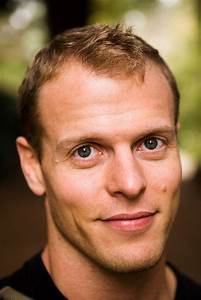
Not since the Renaissance has there been more questioning of authority, advice, and societal norms. Individuals feel empowered to experiment with alternative and unconventional practices for personal improvement to take their life to the next level. Similar to the enlightenment era, the main drivers of this push back come from a confluence of several factors.
• Smartphones — Their cultural impact is equivalent to that of the Guttenberg Printing Press. Data and information are now ubiquitous to all. Apps providing advice and feedback on sleep, exercise, mental cognition, and diet are creating a global generation of self-monitoring individuals bent on improvement.
• Social Media — The concentration of information flow is no longer a top-down controlled process from a few sources and power groups. Reliable and impartial subject matter experts have a direct electronic megaphone communicating advice to a vast audience of loyal followers.
• Lack of trust in Establishment — Scandals with government and religious leaders raise questions about their judgment and right to lead. Complex issues such as Brexit, Bitcoin, Climate Change, Immigration, and Sovereign Debt have governments and other large organizations struggling for answers and relevance.
• Technology Savvy Population — Like the merchant class of the Renaissance, people today have easy access to information and the thirst for knowledge.

• Peace and Prosperity — During times of war and economic crisis, the societal focus is on basic survival, but when times are good, people want to thrive and have higher expectations for themselves and others.
• AI — Artificial Intelligence and Machine Learning fueled by exponential computing power are going to be the job disruptor of this era. Similar to what the Black Plague of the dark ages, The impact of AI on traditional employment will be swift and indiscriminate.
Throughout time, leaders and researchers have had overconfidence in what they knew to be right about the world around them. This hubris resulted in questionable rules and guidance. Many of the conventional thoughts and practices of even the very recent past appear severely flawed.
• Tonsil removal was considered an almost required procedure during adolescence.
• Many medical professionals endorsed moderate cigarette use.
• Cocaine and Lithium were prevalent and approved beverage additives.
• The recommended dietary food pyramid emphasized processed wheat and carbohydrates.
• Licensed Chiropractors and Acupuncturists were painted as charlatans by the established medical community.
• Marathon organizers banned women from entering races because the strenuous activity was considered dangerous to female organs.
Not only were these ideas flawed, but they persisted in society well after substantial scientific evidence proved them to be incorrect. As a result, more and more people feel open to trying new or innovative ideas for personal development. Even standard conventions like purchasing homes, cars, and luxury goods are now being questioned and are taking a back seat to the priority of self-improvement.
In the Transformational economy, individuals are investing their time, money, and energy on product and services that are factually proven to aid in their personal development.
Following a more experimental approach to develop best practices is inherently risky. Bad advice and scams are everywhere, and filtering out the proven transformational advice from rip-offs can be time-consuming. Fortunately, self-proclaimed Guinea pigs are emerging in this new economy that are trying out these new ideas and practices and reporting back from the experimental frontier.
• Tim Ferriss — This author and Podcast host has made a living testing unconventional foods, workout routines, therapies, and sleeping devices on himself and guiding their effectiveness and safety. His bestselling books are crammed with stories and findings from self-administered experiments for performance enhancement.

• Dr. and Mrs. Guinea Pig Podcast — Terry and Heather Dubrow explore the world of all things health, wellness, and beauty from clinical science effectiveness to consumer practicality. The husband and wife team subject themselves to everything currently available from celebrity fads to the best and worst treatments.
• Examine.com — This website compiles studies and simplifies nutrition and supplementation through meticulous analysis of the latest scientific research to help answer your questions on how to be healthier.
• “N of 1 — One man’s Harvard-documented remission of incurable cancer using only natural methods” by Glenn Sabin. This bestselling book is a firsthand account of challenging to conventional medical advice to save his life.
• The Wisdom of Crowds — One positive impact of the highly critical and sometimes mean social media world is that nothing is sacred from the scrutiny of the masses. Online opinions ratings quickly identify successful ideas from failures.
The constant exploration of new ideas and the quick communication of the findings is the fuel for the Hero’s Journey Economy. As risky as these one-off experiments are, they often provide breakthrough thinking on established thoughts. As the late futurists, Watts Wacker observed real innovation is at its core a deviant behavior. Many of the great minds of history were at one time considered radicals during their lifetime.
In the Transformation Economy, the one size fits all mass-marketed product/ service model will yield to personalized offerings. Marketers and organizations must adjust to this N of 1 approach and appeal individual needs while still making a profit. Companies that neglect this N of 1 trend will likely fail.

